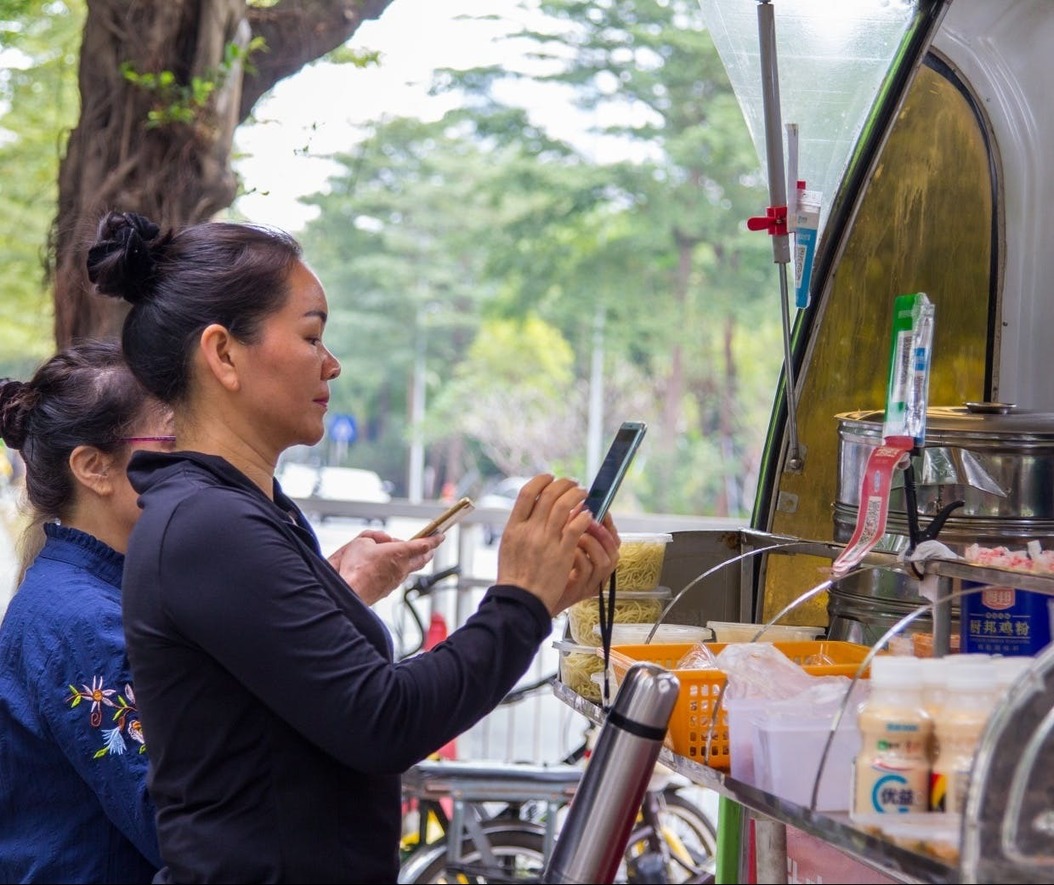Scale
When it comes to China, it’s hard to get away from the one thing the country is most famous for: size and scale. The statistics are always mind-boggling. Black Friday may seem like a big event in the UK retail calendar but it cannot compete with Singles’ Day in November. Alibaba alone racked up more than £24bn in sales on the day 2018 – 27% up on 2017.
Alibaba also set a world record for most payment transactions with Alipay, its online payment platform, processing 256,000 per second. The number of delivery orders surpassed one billion. In just one day.
Then there is the scale of ambition western brands have for China. Starbucks said in 2017 that it would open 2,000 new stores in China by 2021 – one every 15 hours. Prada is opening seven stores in the city of Xi’an – three in just one shopping mall, with two stores alone for its classic British shoe brand Church’s.
Luxury brands are one thing. What about something more prosaic, like healthcare? The Ping An insurance group launched China’s largest online healthcare services provider in 2014. Ping An Good Doctor (what a great brand name!) has AI-geared ‘one-minute clinics’ with online consultations, as well as 24/7 compact booths and more than 100 common drugs available through refrigerated smart vending machines.
Each clinic has an ‘AI doctor’ trained to collect data on patient symptoms and medical history through voice and text input, with human doctors providing remote diagnoses, medical advice, and prescriptions.
Speed
If scale is one half, speed is the other half of the equation. Partly, speed is driven by the work ethos: working on the ground in China and directly with Chinese customers has shown me that the mantra of 9-9-6 holds true – meaning 9am to 9pm, six days per week. Not exactly a 40-hour working week.
The city in China that symbolises speed is Shenzhen. In the 1980s it was not much more than a fishing town. Today, Shenzhen produces 90% of the world’s electronics and has 12.5 million people. The city’s real claim to fame is hardware – this is, after all, where your iPhone or drone is made.
Shenzhen has its own 70 million square foot shopping area called Huaqiangbei Electronics Market, where you can buy circuit boards, LEDs, microchips, sensors, mini-cameras and microphones on the spot. Shenzhen is the place where you can then get your crazy idea turned into a real product.
Convenience
There is one other thing in China that British marketers can look on in envy at: convenience. The phrase ‘friction-free’ is the best way to describe the everyday reality of many transactions in China – to a level that is extraordinary compared to the UK.
To understand convenience in China, you have to understand the influence Tencent and Alibaba have. The vast majority of online activity in the country happens through proprietary applications run by these two companies – and nearly all this is done by phone. Mobile is ubiquitous in China – a way of life, not only a medium of communication.
Alibaba’s online payments system, Alipay, controls about half of China’s online payment market. Aside from the business-to-business site Alibaba.com, Alibaba also has its Tmall marketplace for business-to-consumer, and Taobao marketplace for consumer-to-consumer sales. Combine eBay, Paypal and Amazon and you get an understanding of Alibaba’s brand portfolio.
Tencent owns WeChat, which has a billion-plus users – an incredible combination of Facebook, Twitter, Spotify, WhatsApp, Paypal and YouTube, as well as gaming, in one ‘super app’. WeChat was recently called the ‘operating system of China’.
Most Chinese companies have recognised this and build their advertising and marketing, social communication, shopping, purchasing, and payment programmes around mobile. Brands are not just purveyors of products and services but partners helping consumers with daily living.
You can use your phone for literally everything. On mobile, consumers talk, text, shop, hail taxis, book travel, trade stocks, pay for utilities, deposit money into their bank or transfer money.
As a result, China is increasingly a living insight into a future of ‘frictionless living’ – and consumers expect it. Jumping on a bike, ordering a meal from a huge range of restaurants, giving money to beggars on the street — all can be done at the touch of a button. From a pure payment perspective, WeChat and Alibaba’s Alipay are making cash obsolete.
Sourced through Scoop.it from: www.marketingweek.com



Leave A Comment